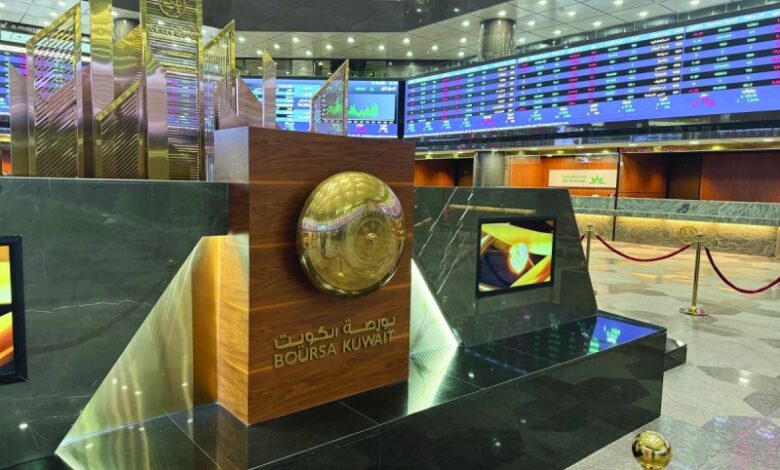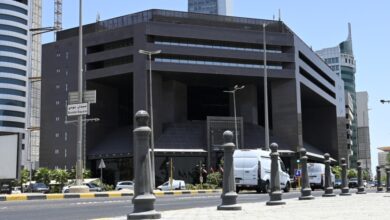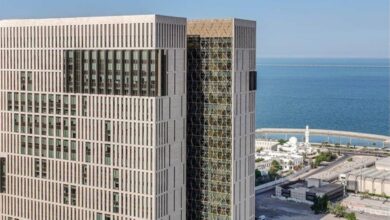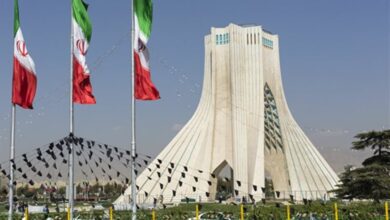Will Boursa halt trading amid regional tensions? A look at regulatory scenarios and investor sensitivity

Since the escalation of military tensions between Iran and Israel on Friday, one of the most pressing questions circulating in Kuwait—and across the Gulf region—is how these developments will impact trading on the Kuwait Stock Exchange.
Specifically, there is growing concern about whether today’s trading session could be halted if market volatility intensifies due to heightened geopolitical fears.
This concern is not unfounded. Many observers are recalling the events of April 6, when the Kuwait Stock Exchange (Boursa Kuwait) recorded one of its most turbulent sessions of the year, reports Al-Rai daily.
That downturn followed global market shocks triggered by U.S. President Donald Trump’s tariff plan, dubbed “Liberation Day,” which sparked fears of an impending global trade war.
During that April session, Boursa Kuwait’s main indices plunged sharply. The Premier Market Index alone dropped over 5%, prompting the activation of the trading halt system—a regulatory mechanism designed to manage excessive market declines. Trading was suspended for 15 minutes to stem panic and restore order.
Boursa Kuwait has in place a tiered regulatory system that automatically suspends trading in response to sharp market losses:
- 5% decline: A 15-minute trading halt is triggered.
- 7% decline: Trading is suspended for 30 minutes.
- 10% decline: Trading is halted for the entire session, although this only applies to the affected market, not the entire exchange.
Importantly, these thresholds can only be activated once per market per session.
As of last Thursday closing, the market capitalization of Boursa Kuwait stood at KD 48.721 billion. Therefore, if the market were to lose approximately KD 2.43 billion (5% of total cap), the first breaker would be triggered. A 10% drop, representing KD 4.87 billion in lost value, would result in a complete trading halt for the session.
The April 6 session serves as a recent case study in how markets can react under geopolitical stress. The general market index fell 5%, the Premier Market Index plummeted by 5.13%, and the Main 50 Index suffered losses exceeding 6%. Liquidity spiked to KD 48 million, signaling a rush to exit positions—especially among leading stocks—amid widespread investor anxiety.
Should today’s session mirror that experience, Boursa Kuwait’s circuit breaker mechanism will likely be reactivated as part of its standard regulatory protocol to mitigate panic selling.
Since March 15, 2020, Boursa Kuwait, with approval from the Capital Markets Authority (CMA), implemented revised trading intervals to enhance market stability during volatile periods:
The downward price limit for entering orders was reduced to 5%; while the upward limit remained at 10%.
In case of a sharp movement, a two-minute auction period is triggered after a security is halted to establish a new reference price. During this period, only buy/sell orders meeting the minimum stock quantity (NMS)—based on a percentage of the average daily volume—are accepted.
This updated mechanism is part of the Exchange’s broader strategy to adapt quickly to fast-moving events, ensuring transparency and protection for all market participants.
Boursa Kuwait’s regulatory framework allows it to intervene in times of crises, geopolitical escalation, or extraordinary events, as per its commitment to investor protection and market integrity.
In conclusion, whether today’s session will be halted depends on how sharply the indices react to geopolitical developments. If fear-driven selling pushes losses toward the key thresholds (5%, 7%, or 10%), Boursa Kuwait will activate its protective measures accordingly.
Until then, the Exchange remains closely attuned to developments, ready to act to contain volatility and uphold market stability.












